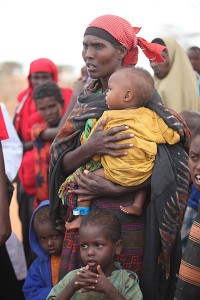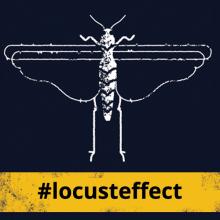global poverty
THE WORLD RECEIVED some very good news in September. The percentage of the global population living in extreme poverty has dropped from 36 percent in 1990 to 10 percent in 2015, the lowest in recorded history. Over this period more than 1 billion people lifted themselves out of the quicksand of extreme poverty.
The Millennium Development Goals, agreed to through the United Nations in 2000, helped galvanize global leadership to cut extreme poverty in half in 15 years, a goal that was achieved a few years early due to remarkable progress in China and India. About half of the world’s countries have reduced extreme poverty below 3 percent.
In 2016, the MDGs were replaced by the Sustainable Development Goals. The SDGs represent a more integrated and comprehensive global agenda centered around 17 goals and 169 targets that now apply to every country in the world, not only to developing countries. They combine a commitment to end extreme poverty by the year 2030—especially in countries across sub-Saharan Africa and fragile conflict-affected states where progress has been uneven—with commitments to protect the environment, address climate change, combat inequality, promote peace, and improve governance.
“And what does the Lord require of you? To act justly and to love mercy and to walk humbly with your God.” [Micah 6:8]
Too often, perversions of our world’s religious traditions make the daily news for their violence, corruption, greed, and prejudice. Meanwhile, authentic representatives of those traditions are often busy doing good — good that goes largely unnoticed. That’s why I’m glad that a diverse group of religious leaders are sharing about seven ways authentic people of faith can work together to make a better world.
I served as a progressive evangelical pastor for 24 years, and during those years, I saw the evangelical movement struggling with its identity. The best versions of evangelicalism, whether they were labeled conservative or progressive, always took seriously passages like Matthew 25, where Jesus said, “For I was hungry and you gave me food, I was thirsty and you gave me drink.” Those verses continue to inspire evangelicals of all persuasions to engage in life-giving mission — and in particular, to engage constructively in the world in seven positive, reconciling, and healing ways.
If you invest just a few minutes over the next seven days thinking and speaking up about these seven ways to participate in our world, I believe by week’s end you will be moved to action and in it find a richer, more faithful life:
Church Makers
In Accidental Theologians: Four Women Who Shaped Christianity, Elizabeth A. Dreyer delves into the theology of four female saints of the Catholic Church, Hildegard of Bingen, Catherine of Siena, Teresa of Avila, and Thérèse of Lisieux, describing their impact on the church in their times and today. Franciscan Media
Global Feast
The revised edition of Extending the Table cookbook (first released in 1991) includes new dishes, regional menus, and more photos, as well as prayers and stories. It is part of the World Community Cookbook series commissioned by Mennonite Central Committee, and royalties support MCC’s work. Herald Press
Despite progress in defeating extreme global poverty, most Americans see no end in sight, according to a survey sponsored by Compassion International.
Christians who attend church at least monthly and consider religion very important in their life overwhelmingly (96 percent) expressed concern about the world’s poorest people. But they were skeptical that global poverty could be ended in the next 25 years. Only 41 percent of the group said it was possible.
And yet Scott Todd of Compassion International, the Christian nonprofit agency that sponsors 1.5 million children abroad, remains upbeat. He sees hope in the numbers of “practicing Christians” who express concern about poverty and a willingness to do more.
Despite our best efforts, we’ve somehow missed it.
Even in the midst of our generous financial donations, volunteer hours, mission trips, and letter writing, we’ve failed to see what should have been glaringly obvious: the global poor lack the most basic ingredient for forward progression — personal security.
In their recently released book, The Locust Effect, Gary Haugen (founder of the International Justice Mission), and Victor Boutros (federal prosecutor with the U.S. Department of Justice) convincingly argue that all our best work to eradicate poverty — even while worthwhile, helpful, and well-intended — is for naught unless we concurrently address the epidemic of violence and fear facing the poor in the developing world. They write:
"...the forces of predatory violence will not simply go away... On the contrary, if the forces of violence are not restrained, it is the hope of the poor that will just keep going away...and there is nothing that our programs for feeding, teaching, housing, employing, and empowering the poor will be able to do about it."
Caleb is a father in Africa. He works hard as a night watchman, and he and his wife save from their small income with the dream of sending their daughter to college. But the family’s dreams are destroyed when the police arrest Caleb on a random sweep for a robbery he had nothing to do with. This is not to say that the evidence against him was flimsy; there is no evidence against him whatsoever. The police needed to show an arrest had been made, and Caleb was an easy target … because he was poor.
Once in police custody, Caleb is viciously beaten. He is shaken down for bribes. And then, he is thrown in jail and charged with a capital offense. He is given no indication of when he might have a chance to prove his innocence – and even if he were, Caleb can’t afford a lawyer to help him. His family struggles to hang on without him.
What is perhaps most stunning about Caleb’s story is not the brutality (though it certainly is brutal), the singular unfairness of it all (though it is dramatically and utterly unjust), the hopelessness (though the story is obviously devastating). No, what is most stunning is just how ordinary Caleb’s story is.
A recent report by OXFAM offered some sobering data about both the concentration and flow of wealth in the world today. A few key points, also summarized by a new business article on The Atlantic website , include:
- The richest 85 people in the world control as much wealth as the poorest 3,000,000,000 people;
- Nineteen out of 20 “G20” countries are experiencing growing income inequality between rich and poor;
- In the United States in particular, 95 percent of the post-financial-crisis capital growth has been amassed by the richest 1 percent of Americans;
- While domestic income inequality continues to grow, the income tax rates for wealthiest Americans have steadily dropped.
My first reaction to seemingly immoral concentrations of wealth, and the systems that enable it, is anger and a compulsion to call them out, to change them and to distribute the world’s treasures evenly among all of God’s people.
But what if we need the insanely wealthy to realize a kingdom-inspired vision for our world?
In the age of the internet, we have access to a vast quantity of information beyond our dreams even twenty years ago. Most of the time, I use this power to look at LOLCats and Buzzfeed articles like "11 Signs You Might be Dating a Pirate."
But as a Christian who feels the weight of caring for the people Jesus called "the least of these," I feel a responsibility to be educated about the plight of the billions of people who live on less than $2 per day around the world (and here in the US, as recently evidenced by the cuts to food stamp programs).
Caring for the poor directly in our neighborhoods is essential to the mission of the local church, and universally, it is the Church’s responsibility to care for the poor in every corner of the planet.
Throughout my salad years, I gave as I could — probably somewhere around the national average. But that was the problem.
I gave as I could, but never as I was called to do. By God.
I realized that I had been lying to both myself and God. I was never a “poor” college student. I was never a “poor” non-profit worker. I was never a “poor” young professional in D.C.
When I was in school, with very little expendable income, I still received a quality education, had consistent access to food, my housing was stable, and I had health insurance. My starting salary after college put me above the national poverty threshold (about $24,000 a year… for a family of four).
Then I took a look at the Global Rich List, which calculates your income compared to the global population. I realized I was quickly approaching the 1 percent. That’s right. In global terms, I wasn’t there yet, but I was well on my way to becoming a card-carrying member of the global elite — the dreaded 1 percenters.
Yup, all it takes to hit the top 1 percent of global income earners is to make $47,500 a year.
The Bible-inspired movement set the standard -- and the inspiration -- for future campaigns for change.
Ron Paul Defends The 99 Percent: ‘It’s A Very Healthy Movement’; SWAT Raids, Stun Guns, And Pepper Spray: Why The Government Is Ramping Up The Use Of Force; GOP Needs To Address Immigration In A 'Humane' Way; Gap Between Rich And Poor Widening Across The Developed World, As Bankers And Executives Reap More Income; Challenges At The Cutting Edge Of Fighting Global Poverty; Baby Boomers Heading Back To Seminary; Worst Year Ever For Greenhouse Gases.

As Christians are we not obligated to help those who area most in need? Should we only focus on those in our own country who need our help, or does God's command us to ignore borders?
How might the words of the biblical prophet Isaiah resonate with us today, when he says: "If you spend yourselves on behalf of the hungry and satisfy the needs of the oppressed, then your light will rise in the darkness, and your night will become like the noonday."
Some sources have stated that more than 12 million people are being impacted by the worst drought and famine in the region of the Horn of Africa in 60 years.
12 million people.
How do you wrap your head around such a number?
12,000,000
You begin with one.
The World Food Programme, for example, has shared that they can provide a nutritious meal for one person for .17
How a Florida nonprofit is nurturing the abundant life, one rooftop at a time.

As Christians concerned about poverty, it is time to turn our full attention to the injustices of an "offshore tax system" that enables corporations and the wealthy to dodge taxes and impoverish countries around the world.
As members of Congress in the United States debate deep and painful budget cuts, people of faith should raise our voices against an unfair system that enables profitable U.S. corporations to dodge taxes, depleting an estimated $100 billion from the U.S. Treasury each year. Instead of cutting $1 trillion over the next decade from programs that assist the poor and ensure greater opportunity, we should eliminate these destructive tax gimmicks.
Recent reports show that aggressive tax dodgers such as General Electric, Boeing, and Pfizer, avoid billions in taxes a year. They use accounting gymnastics to pretend they are making profits in offshore subsidiaries incorporated in low- or no-tax countries like the Cayman Islands, thereby reducing their tax obligations in the United States. This system is unfair to domestic businesses that have to compete on an un-level playing field.











